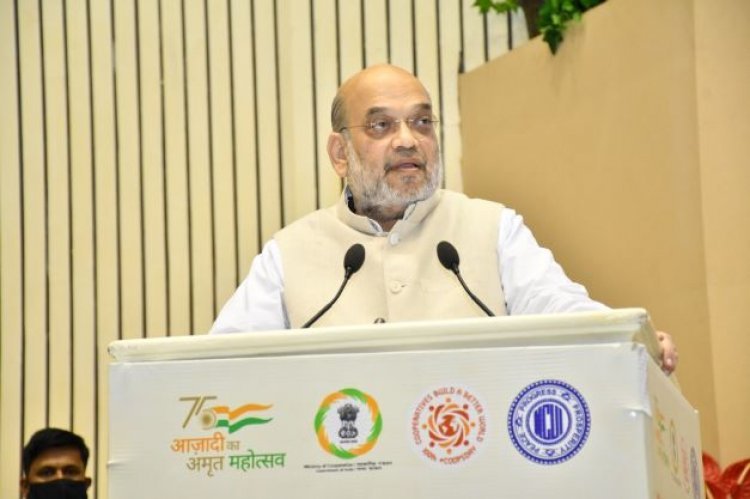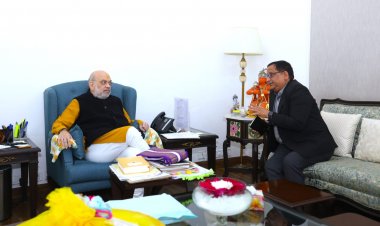Amit Shah announces committee under Suresh Prabhu to draft National Cooperation Policy
The national-level committee consists of 47 members from all parts of the country. The new policy is being formulated to realize the vision of 'Sahakar se Samriddhi'. Besides, Shah will inaugurate a two-day National Conference of State Cooperation Ministers in New Delhi on September 8.

Union Home and Cooperation Minister Amit Shah has announced the constitution of a national-level committee to draft the National Cooperation Policy document. The new policy is being formulated to realize the vision of 'Sahakar se Samriddhi' (Prosperity Through Cooperation) under Prime Minister Narendra Modi. This was stated in a press release from the Ministry of Cooperation.
The national-level committee under the Chairmanship of former Union Cabinet Minister Suresh Prabhakar Prabhu consists of 47 members from all parts of the country. The committee comprises experts of the cooperative sector, representatives of national, state, district and primary cooperative societies, secretaries (cooperation) and registrars of cooperative societies of States/UTs, and officers from Central ministries/departments.
Besides, Shah will inaugurate a two-day National Conference of State Cooperation Ministers in New Delhi on September 8. Union Minister of State for Cooperation BL Verma along with Cooperation Ministers and Additional Chief Secretaries, Principal Secretaries, Registrars of Cooperatives and representatives from 36 State Governments and UTs will attend the Conference.
The Conference will provide a platform to formulate an implementable policy/planning framework through discussion and coordination among participants on several important themes, not only covering the whole lifecycle of cooperatives but also touching on all facets of their business and governance.
The National Cooperation Policy and National Cooperative Database will be among the policy matters to be discussed. The new proposed schemes to be discussed include PACS in every panchayat, export of agro-based and other products, promotion and marketing of organic products, and expansion of co-operatives to new areas.
Besides, subjects related to PACS — their computerization, action plan for the revitalization of defunct PACS, model bye-laws and bringing uniformity in state cooperative laws — will be discussed. Also, there will be a discussion on prioritizing long-term financing for primary cooperative societies and on milk and fish cooperative societies.
The press release says that the government is committed to bringing about a positive change in the lives of people associated with cooperatives through ‘Sahakar se Samriddhi’. To realize this vision, the Ministry of Cooperation was formed on 6 July 2021. Under the leadership of Amit Shah, the Cooperation Ministry is continuously working on giving a new impetus to the development of the cooperative sector, strengthening it and making it a model of all-inclusive development.
The existing National Policy on Cooperatives was formulated in 2002 with the objectives of facilitating the all-round development of cooperatives and providing necessary support, encouragement and assistance to them so as to ensure that cooperatives work as autonomous, self-reliant and democratically managed institutions accountable to their members and make a significant contribution to the national economy.
Today, India has around 8.5 lakh cooperative societies with a member base of around 29 crore, spread across the length and breadth of the country. These co-operatives are engaged in varied activities like agro-processing, dairying, fisheries, housing, weaving, credit and marketing, to name a few.
The new National Cooperation Policy document is being formulated with a view to fulfilling the mandate given to the new Ministry of Cooperation, which inter alia, includes realizing the vision of ‘Sahakar se Samriddhi’, strengthening the cooperative movement in the country and deepening its reach up to the grassroots, promoting cooperative-based economic development model, and creating an appropriate policy, legal and institutional framework to help cooperatives realize their potential. The new policy will go a long way in strengthening the cooperative movement in the country.



 Join the RuralVoice whatsapp group
Join the RuralVoice whatsapp group








































